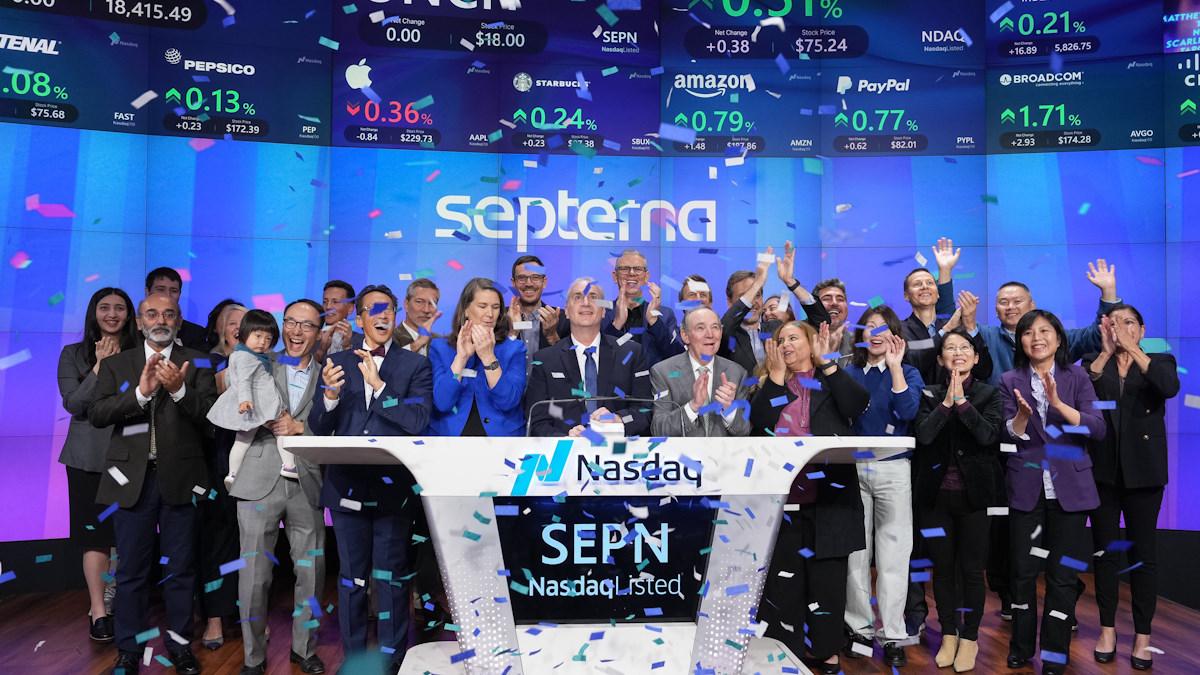Nasdaq debutante Septerna swells its IPO to $331m

Septerna's protracted initial public offering (IPO) on the Nasdaq has finally reached its conclusion, with the final amount raised topping $331 million.
The two-year-old South San Francisco-based biotech – which focuses on the development of small-molecule drugs targeting G protein-coupled receptors (GPCRs) – revised the terms of the IPO upwards twice in the face of strong investor appetite.
It originally planned to offer 10.9 million shares at a range of $15 to $17, but raised the price to $18 and last week said it had raised $288 million through the sale of 16 million shares. The final figure – which raises the total number of shares sold to 18.4 billion – comes after the underwriters of the IPO took up their additional options.
Septerna started trading on the Nasdaq on 25th October at $23.50, under the SEPN symbol, and has held above the $20 level since then.
GPCRs are a fertile source of drug targets for the pharma industry, affecting a myriad of physiological functions, and are the target of around a third of all marketed drugs. However, the role of many of them is poorly understood, and it is thought these so-called 'orphan' GPCRs could provide a rich supply of new medicines.
Septerna's lead and currently only clinical-stage asset is SEP-786, an orally bioavailable parathyroid hormone (PTH) 1 receptor agonist that is currently in a phase 1 trial in patients with the rare endocrine disease hypoparathyroidism, with a data readout expected in the middle of 2025.
Hypoparathyroidism leads to decreased calcium and elevated phosphorus levels in the blood and causes complications in organs and tissues, such as kidney damage and increased bone mineral density. It affects an estimated 70,000 to 90,000 people in the US.
Septerna recently reported preclinical data with SEP-786 showing that the drug activates PTH 1 receptors and elicits downstream effects on bone and kidney by regulating key genes important for calcium homeostasis in a manner similar to the native hormone.
Septerna is also developing SEP-631, billed as an MRGPRX2 negative allosteric modulator for the treatment of chronic spontaneous urticaria (CSU) that is currently being prepared for clinical testing, as well as preclinical programmes for thyroid and metabolic diseases.
The dramatically upsized IPO ties into an increasingly buoyant biotech financing environment, with a string of upsized transactions, including recent Nasdaq debuts for MBX Biosciences, BioAge Labs, Bicara Therapeutics, Upstream Bio, and Zenas BioPharma.












